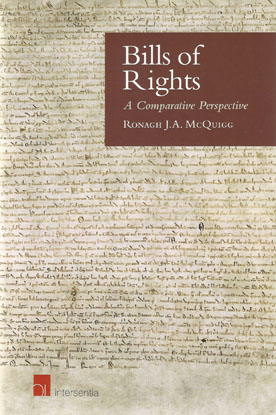
Bills of rights are currently a much debated topic in various jurisdictions throughout the world. Almost all democratic nations, with the exception of Australia, now have a bill of rights.
As regards the latter, a model which has become increasingly popular is that of bills of rights based on interpretative obligations, whereby duties are placed upon courts to interpret national legislation in accordance with human rights standards.
The aim of this book is to provide a comparative analysis of the bills of rights of a number of jurisdictions which have chosen to adopt such an approach. The jurisdictions considered are New Zealand, the United Kingdom, the Australian Capital Territory and the Australian state of Victoria.
There have been very few books published to date which contain detailed comparative analysis of the bills of rights which this book will address. The book adopts a unique thematic approach, whereby six aspects of the bills of rights in question have been selected for comparative analysis and a chapter is allocated to each aspect. This approach serves to facilitate the comparative discussion and emphasise the centrality of the comparative methodology.